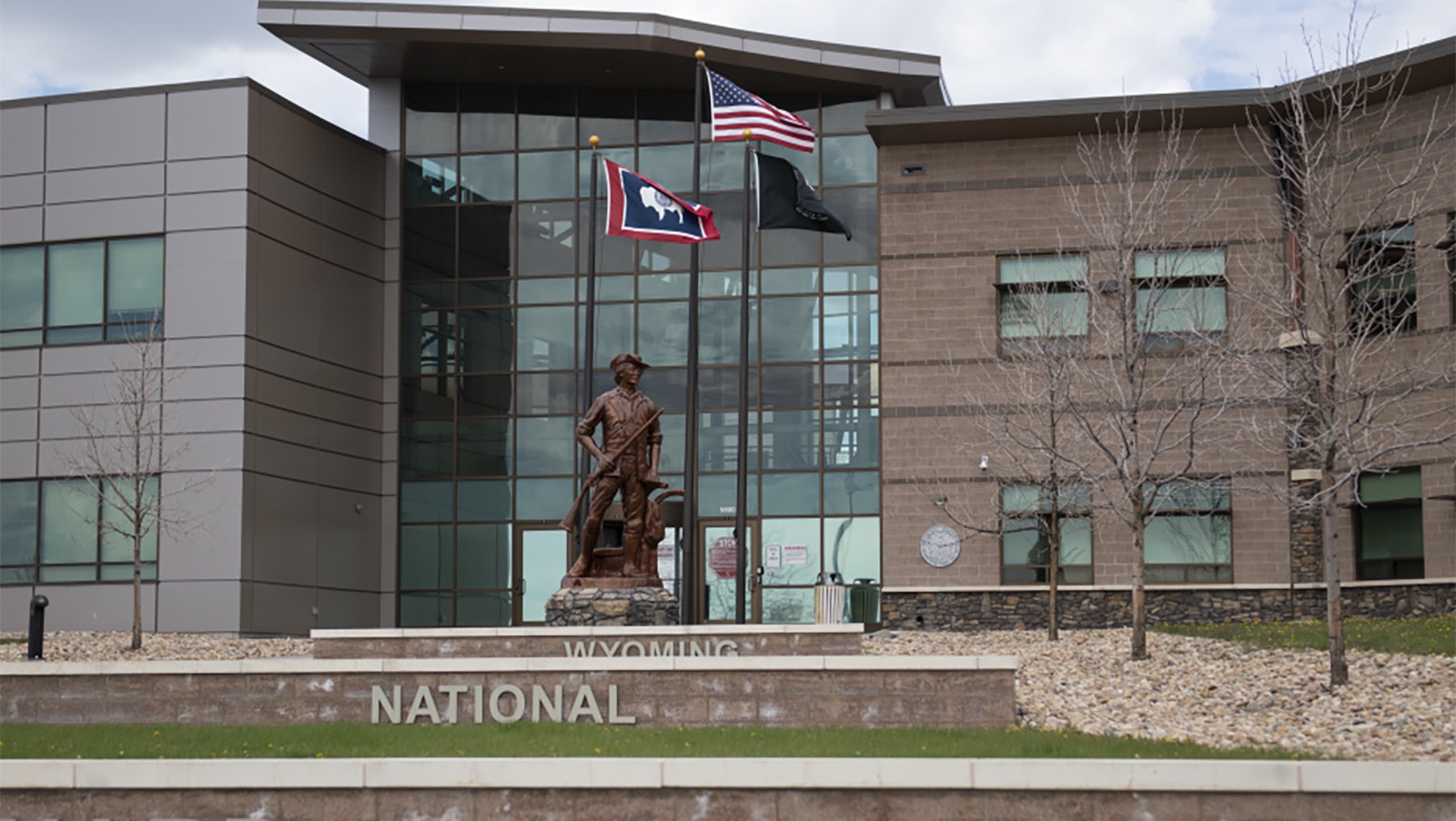Waiting on a $250,000 reimbursement for providing security at President Donald Trump’s inauguration while also kick-starting a partnership with immigration authorities leaves Wyoming National Guard leaders worried about getting that money, the adjutant general told legislators this week in Casper.
Gov. Mark Gordon announced Aug. 13 he’s authorizing the activation of up to 15 Wyoming National Guard members to help U.S. Immigration and Customs Enforcement (ICE) personnel with its missions.
In a partnership set to begin 23 days from Wednesday, the state guardsmen would be in a “support” role rather than a law enforcement role, bolstering logistics, transportation, and administrative functions, according to the governor’s statement.
That comes with some money shifting, according to Maj. Gen. Gregory Porter, Wyoming’s adjutant general.
“Working through the issues right now — it is federal money that’s coming to us; it will be under the governor’s control … which is good,” Porter told lawmakers in a Monday meeting of the legislative Transportation, Highways and Military Affairs Committee.
“The bad thing about that — I will just tell you so you understand — is, it’s federal money but it’s not programmed,” he said. “I mean, nobody saw this coming. So it’s all coming out of current accounts right now.”
The Guard’s readiness accounts for soldiers and airmen could be depleted to a point at which service members can’t fulfill “some of their business,” continued Porter, “Because it’s non-reimbursable to the Department of Defense right now, it’s free chicken to ICE.”
Those comments came in light of the Wyoming Military Department’s fiscal year reaching its end next month.
Many other states may miss their chances to drill in September, but Wyoming will likely be “in good shape,” Porter added later under questioning by Committee Co-Chair Rep. Landon Brown, R-Cheyenne.
Feds And Feds
While normally agencies that help ICE do so directly and through agreements or memoranda of understanding, the guardsmen’s efforts appear to hinge on a shifting of money among federal departments.
ICE’s Denver Enforcement and Operations office said in a Wednesday email that it “does not currently have an agreement with the Wyoming National Guard” and that funding questions should go to the U.S. Department of Defense.
The DoD did not return a Wednesday email inquiry by publication time.
But the DoD announced July 25 that it was changing the status of 1,200 service members and 500 newly authorized personnel to help ICE.
That shift sent Marine Corps and Naval Reserve members who’d been providing that support back to their home stations and brought in National Guard members to fill the role, the DoD announcement says.
While the ICE support was unplanned, Gordon and state Military Department leaders agreed to undertake it after reviewing resources and availability the Guard already has, the Guard’s strategic communications director Joseph “Cos” Coslett Jr. told Cowboy State Daily on Wednesday.
In this case, the answer is that the Guard can handle a shift of 15 people to that work, he added.
Most of the Wyoming National Guard’s money comes from federal rather than state coffers. The Wyoming Military Department’s budget for the Guard's fiscal year 2024 consisted of $7.23 million in state money and $94 million in federal money, for a total of $101.23 million, Coslett addedin a Wednesday email.
Quarter Million Due
The unplanned mission impact is more pronounced, said Porter at the meeting, because the Guard wasn’t reimbursed for helping to secure the presidential inauguration.
In a series of follow-up emails, Porter told Cowboy State Daily that the shortfall isn’t in Wyoming state funds, but federal dollar pools.
The Guard spent about $250,000 in federal money to support the president’s inauguration in January, he wrote.
That mission and supporting ICE “were not programmed in the current 2025 fiscal year,” Porter added.
To remedy the deficit, he said, the Army National Guard is requesting that Congress reprogram $125 million within the U.S. Department of Defense (DoD) to cover the cost.
Reprogramming, or shifting money to fund missions, isn’t out of the ordinary and the National Guard faces unplanned missions every year, the email says.
“The risk comes if Congress does not act to reprogram these federal dollars before the end of the fiscal year," Porter wrote, adding that some states could face “significant financial liabilities that would directly impact readiness.”
That kind of reprogramming is expected to be considered in the U.S. House Armed Services Committee, its Senate equivalent, and Appropriations Committees and Defense Subcommittees of both chambers — after the Labor Day recess.
Gordon and Wyoming’s Congressional delegation have always been strong advocates for the National Guard and fight for the needed resources, wrote Porter. Still, he added, “timing matters (in being) ready to respond when our nation calls.”
A current high operational tempo amplifies that need, the adjutant general concluded.
Working On That
Wyoming’s two Republican U.S. senators say they’re working on the issue, and the state’s lone U.S. House member — also a Republican — says she’s prepared to do so.
“The Wyoming National Guard never fails to answer the call to serve, including providing extra security at presidential inaugurations,” wrote Sen. John Barrasso’s communications director Laura Mengelkamp in a Tuesday email. “Senator Barrasso is committed to making sure the Guard and Wyoming are promptly reimbursed for all necessary expenses.”
Sen. Cynthia Lummis’s office echoed those statements in a Tuesday email.
Rep. Harriet Hageman said the Wyoming National Guard “consistently demonstrates courage and dedication, whether at home or in our nation's capital,” adding, “I am prepared to engage with their leadership should they reach out on the matter.”
Clair McFarland can be reached at clair@cowboystatedaily.com.





